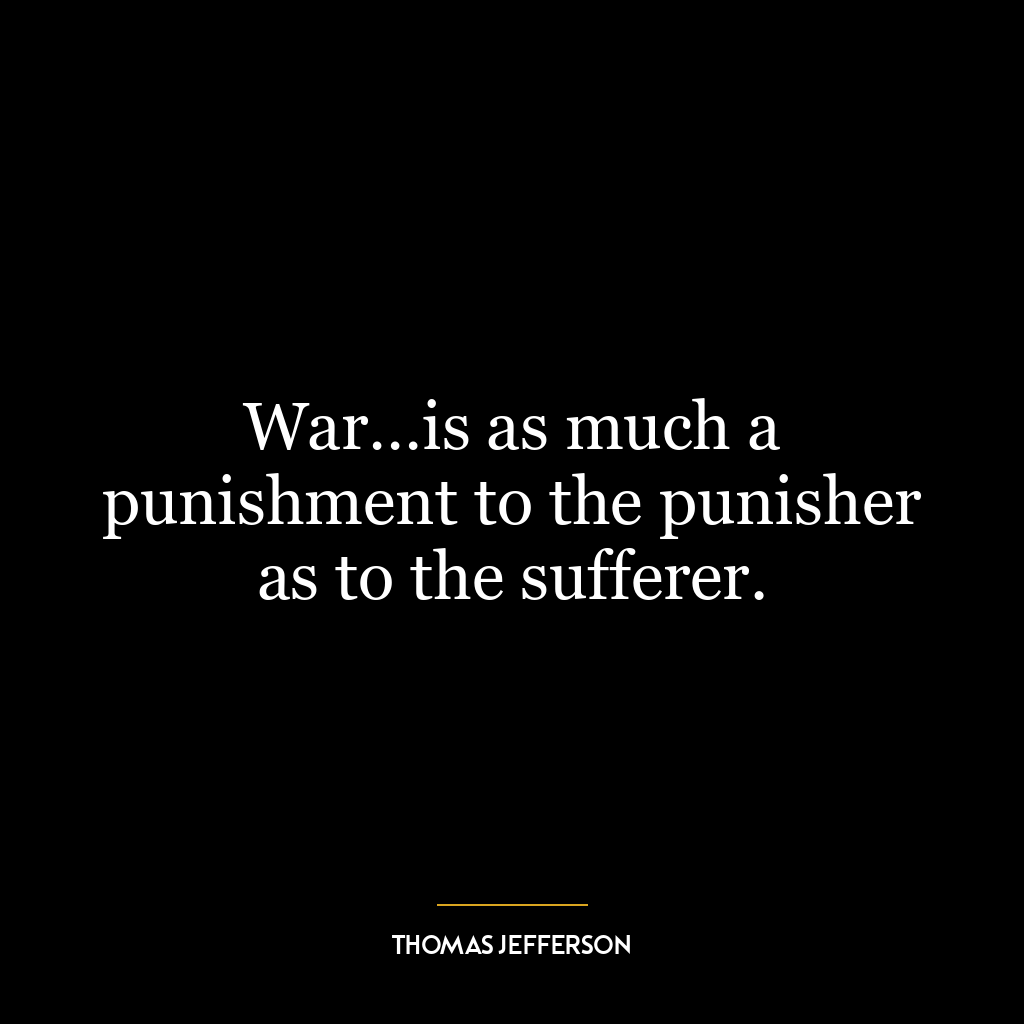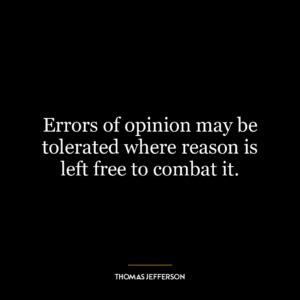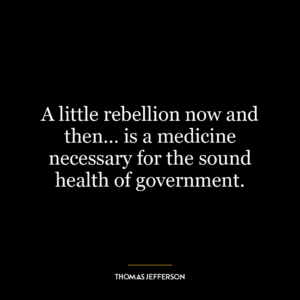This quote implies that war is not just a torment for the one who suffers, but also for the one who instigates it. The punisher, in this context, can be seen as the party or nation that initiates the war. They might do so believing they will gain something from it – power, resources, territory – but Jefferson suggests that they too are punished by their actions.
The punishment of the initiator could come in many forms. It may be economic drain due to military spending and post-war reconstruction efforts; loss of human lives which can lead to societal instability; moral degradation as acts of violence and cruelty become normalized; or international isolation due to violation of peace treaties and human rights.
In today’s world, this quote holds true more than ever. With an increasingly connected global community and advanced warfare technology at our disposal, any act of aggression has far-reaching consequences. Not only does it lead to loss of life on both sides but also affects global economy, diplomacy relations between nations and mental health issues among soldiers returning from war.
On a personal level too we can apply this idea. Whenever we engage in conflict with others – may it be verbal or physical – we are not just hurting them but ourselves too. We exhaust our energy reserves harboring negativity towards others while damaging our own mental peace and relationships in the process.
Therefore, Jefferson’s quote serves as a reminder that initiating conflict is never truly beneficial for anyone involved – neither for those who suffer directly nor those who cause suffering indirectly – making diplomacy and peaceful resolution far more desirable options than resorting to warfare or conflict.















